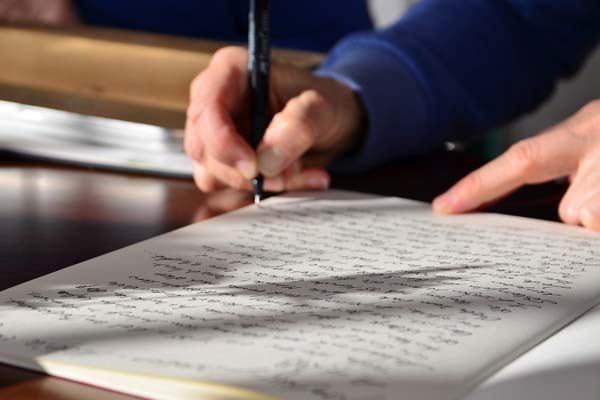Is IB History Hard? A Straightforward Answer
IB History is a challenging subject requiring hard work and dedication. It covers various topics, from ancient civilizations to modern world events, and requires students to analyze and interpret historical sources. Many students wonder if IB History is hard and if they are up for the challenge.
The answer to whether IB History is hard is subjective and depends on the individual student’s strengths and weaknesses. Some students may find the subject difficult due to the content they need to learn, while others may need help with the critical thinking and analysis required. However, anyone can excel in IB History with the right mindset and study habits.
It is important to note that IB History is not impossible to succeed in. Many students have achieved excellent results in the subject, and with the proper support and resources, anyone can do the same.
Course Structure
The IB History course is designed to provide students with a comprehensive understanding of the past and how it has shaped the present. The course is divided into Higher Level (HL) and Standard Level (SL).
HL and SL Courses
The HL course is more rigorous than the SL course and requires students to study additional material. Students who take the HL course will also be required to write a longer essay and answer more complex questions on the exam. The SL course is less demanding but still requires significant work.
Prescribed Subjects
The IB History course is divided into four prescribed subjects:
- The Move to Global War
- Rights and Protest
- Authoritarian States
- The Cold War
Each prescribed subject covers a specific period of history and requires students to study various events, people, and ideas.
World History Topics
In addition to the prescribed subjects, students must study two World History Topics. These topics cover many historical events and allow students to explore different aspects of history.
Depth Studies
The final component of the IB History course is the Depth Studies. These are in-depth studies of specific historical events, people, or ideas. Students are required to complete one in-depth study for the HL course and one for the SL course.
Students will take three exams during the class: Paper 1, Paper 2, and Paper 3. Paper 1 is a source-based exam, while Paper 2 requires students to answer essay questions on the prescribed subjects and World History Topics.
Paper 3 is the essay component of the exam and requires students to write an in-depth essay on one of the Depth Studies they have studied.
🌟 Hey Students! 🚀 Ready for the ultimate experience? Join us on Studentsinside.com's Facebook, YouTube, WhatsApp, and LinkedIn. Click now for tips, fun, and success vibes! 🌈✨ #StudentLife #JoinUs
Assessment Methods
IB History is a challenging course, and the assessment methods used to evaluate students’ understanding and knowledge of the subject material can be particularly demanding. The IB History program uses internal and external assessments to evaluate students’ progress throughout the course.
Internal Assessment
The Internal Assessment (IA) is a crucial component of the IB History program. It requires students to investigate a specific topic related to the course.
Students must select a topic that aligns with one of the prescribed subjects and base their investigation on primary sources. The IA counts for 20% of the course’s total grade.
The IA is divided into three sections: identifying and evaluating sources, investigation, and reflection. In the first section, students must identify and evaluate sources relevant to their chosen topic.
In the investigation section, students must conduct research and write a report that presents their findings. In the reflection section, students must reflect on their research process and evaluate their work.
External Assessment
The External Assessment is the final assessment for the IB History program. It consists of two components:
Paper 1 and Paper 2. Paper 1 is worth 35% of the final grade and assesses students’ knowledge and understanding of the prescribed subjects. Paper 2 is worth 45% of the final grade and assesses students’ knowledge of the topics studied during the course.
Paper 1 consists of two sections. Section A requires students to answer one question from a choice of three based on a specific prescribed subject. Section B requires students to answer one question from a choice of three based on comparing two prescribed subjects.
Paper 2 consists of three sections. Section A requires students to answer one question from a choice of three based on the final stages of Muslim rule in Spain.
Section B requires students to answer one question from a choice of three based on the perspectives studied during the course.
Section C requires students to answer one question from a choice of three based on the prescribed subjects studied during the course.
Key Historical Themes
Conquest and Its Impact
One of the key historical themes in IB History is Conquest and Its Impact. This theme encompasses the study of how societies and cultures have been conquered and how this has affected them.
It includes the study of the motivations behind conquest, the methods used to conquer, and the impact of conquest on both the conquerors and the conquered.
In studying this theme, students may examine topics such as the Spanish conquest of the Aztecs, the British colonization of India, or the Mongol Empire. They may also analyze the cultural, economic, and political changes due to these conquests.
Rights and Protest
Another critical historical theme in IB History is Rights and Protest. This theme focuses on the struggle for human rights and social justice throughout history.
It includes studying civil rights, women’s suffrage, labor rights, and the role of protest and resistance in bringing about change.
In studying this theme, students may analyze topics such as the American Civil Rights Movement, the French Revolution, or the Arab Spring. They may also examine the strategies and tactics utilized by social movements to realize their objectives.
Conflict and Intervention
The theme of Conflict and Intervention explores the causes and consequences of armed conflict throughout history.
It includes the study of the political, economic, and social factors that contribute to conflict and the role of intervention in resolving or exacerbating conflicts.
Students may examine World War I, the Cold War, or the Gulf War in studying this theme. They may also analyze the impact of intervention by international organizations such as the United Nations or NATO.
Origins, Development, and Impact of Industrialization
The Origins, Development, and Impact of Industrialization theme focuses on the economic and social changes during the Industrial Revolution.
It includes the study of the origins of industrialization, the development of new technologies, and the impact of industrialization on society and the environment.
In studying this theme, students may analyze topics such as the rise of capitalism, the impact of industrialization on working conditions, or the development of new forms of transportation.
They may also examine the environmental consequences of industrialization, such as pollution and deforestation.
Case Studies
The IB History curriculum includes five prescribed subjects, each with two cross-regional case studies. Students must study one prescribed subject, and within that subject, they must study both cross-regional case studies.
The prescribed subjects include the Global Wars, Dictatorships, the Cold War, and the histories of Africa, the Middle East, the Americas, Asia and Oceania, and Europe.
Move to Global War
Move to Global War is a prescribed subject that covers the period from 1850 to 1941. It explores wars’ causes, practices, and effects, focusing specifically on World Wars I and II.
Students will examine the political, economic, and social factors that led to the outbreak of war, the impact of the wars on civilians, and the role of superpower tensions in shaping the post-war world.
Authoritarian States
Authoritarian States is a prescribed subject that covers the period from 1917 to 1953. It explores the rise of authoritarian regimes in Europe and Asia, including the Soviet Union, Nazi Germany, and Communist China.
Students will examine the ideologies, methods, and impact of these regimes and the resistance and opposition they faced.
Cold War
Cold War is a prescribed subject that covers the period from 1945 to 1991. It explores the superpower tensions between the United States and the Soviet Union, including the conflict’s ideological, political, and military dimensions.
Students will examine the impact of the Cold War on global politics, economics, and society, as well as the role of regional conflicts and alliances.
History of Africa and the Middle East
History of Africa and the Middle East is a prescribed subject that covers the period from 1880 to 1980. It explores the impact of imperialism, nationalism, and decolonization on the region and the role of religion, culture, and identity.
Students will examine the region’s political, economic, and social issues and see how different groups and people have responded.
History of the Americas
History of the Americas is a prescribed subject that covers the period from 1492 to 1981. It explores the impact of colonization, revolution, and globalization on the Americas, including North, Central, and South America.
Students will examine the political, economic, and social transformations that have shaped the region and the role of indigenous peoples, immigrants, and marginalized groups.
History of Asia and Oceania
History of Asia and Oceania is a prescribed subject that covers the period from 1750 to 2000. It explores the impact of imperialism, nationalism, and globalization on the region, including East, Southeast, and South Asia, Australia, and New Zealand.
Students will examine the political, economic, and social changes that have shaped the region and the role of religion, culture, and identity.
History of Europe
History of Europe is a prescribed subject that covers the period from 1815 to 2000. It explores the impact of nationalism, imperialism, and globalization on the region, including Western, Central, and Eastern Europe.
Extended Essay and CAS
The International Baccalaureate (IB) History course is not only about attending classes, taking tests, and writing essays. It also includes two other significant components: the Extended Essay (EE) and Creativity, Action, and Service (CAS). These are mandatory for all IB students, including those studying history.
The Extended Essay is a research paper composed by students under supervision, extending up to 4,000 words. It is an opportunity for students to explore a topic of their choice in-depth and demonstrate their research and writing skills. The EE is an essential part of the IB program and contributes to the final grade.
The CAS program aims to develop students’ creativity, physical activity, and service to the community. It requires students to participate in extracurricular activities under these three categories.
Students need to complete a minimum of 150 hours of CAS activities, with a balance between the three categories.
For IB History students, the EE and CAS can be challenging, but they are also rewarding. The EE requires extensive research and writing; students must manage their time effectively to complete it on time.
The CAS program encourages students to try new activities outside their usual interests. Yet, both EE and CAS equip students with essential skills for their future.
The EE teaches students research, writing, and critical thinking skills essential for university and beyond. The CAS program helps students develop leadership, teamwork, and communication skills, which are also valuable in the workplace.
Challenges and Tips
Teachers’ Role
Learning IB History can be challenging due to its vast content. However, teachers are essential in helping students understand the material and prepare for exams.
A good teacher can make all the difference in a student’s understanding and enjoyment of the subject. Teachers must provide clear explanations, engage students in discussions, and encourage critical thinking.
Change and Adaptation
Another challenge of studying IB History is the constant change and adaptation of the course content. The curriculum is regularly updated to reflect new research and changing historical perspectives.
This means that students must be adaptable and willing to learn new information. It is crucial for students to keep up with these changes and to seek out additional resources if needed.
Significance of Studying History
Studying IB History may be difficult, but it can be enriching. This course offers students a chance to gain profound insights into the world, fostering the growth of critical thinking and analytical abilities.
History also teaches students about causation, the significance of events, and how they have shaped society and the economy.







